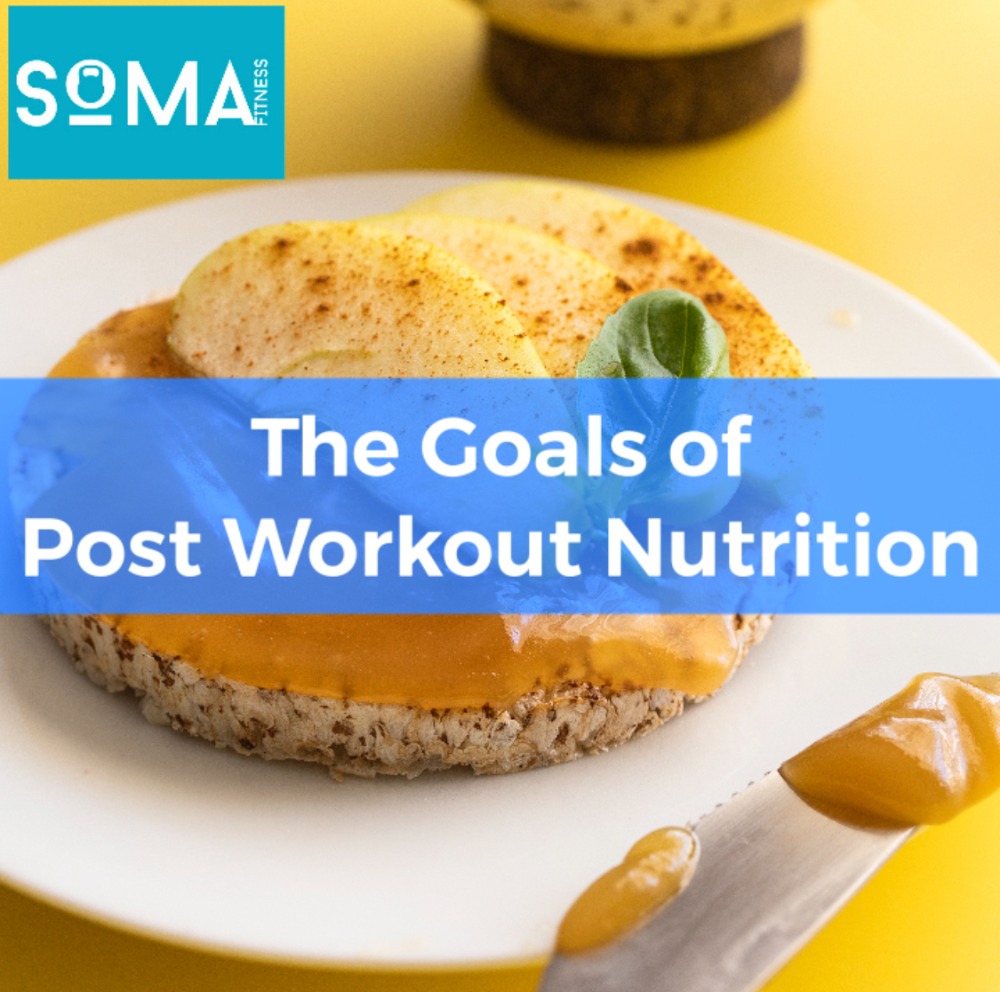The Goals of Post Workout Nutrition

After a strenuous workout, your body requires proper nutrition to recover and perform optimally. Post-workout nutrition is crucial to achieving your recovery goals, as it can help replenish energy stores, reduce muscle soreness, and promote muscle growth. In this article, we’ll explore the goals of post-workout nutrition and some examples of how to achieve them.
- Replenish Glycogen Stores: During exercise, your body uses glycogen, which is stored in your muscles and liver, for energy. To maintain high-quality exercise frequency, you need to replenish these glycogen stores after your workout. Consuming carbohydrates post-workout can help restore glycogen levels and provide fuel for future workouts.
Examples: A banana on a rice cake, or a sports drink containing carbohydrates can all help replenish glycogen stores.
- Promote Muscle Protein Synthesis: Resistance exercise creates tiny tears in your muscle fibers, and proper nutrition is required to repair and rebuild these fibers, to promote muscle growth. Consuming protein after a workout can help stimulate muscle protein synthesis and promote muscle growth.
Examples: A whey protein shake, grilled chicken breast, or Greek yogurt (you could ad a banana and honey to this for some carbs) are all excellent sources of protein to consume post-workout.
- Reduce Muscle Soreness and Inflammation: After a challenging workout, you may experience muscle soreness, stiffness, and inflammation. Consuming anti-inflammatory foods post-workout can help reduce inflammation and aid in recovery.
Examples: Berries, leafy greens, salmon, and nuts are all anti-inflammatory foods that can help reduce muscle soreness and inflammation.
- Restore Electrolyte Balance: Sweating during exercise can cause a loss of electrolytes, including sodium, potassium, and magnesium. Proper electrolyte balance is crucial for muscle function and hydration. Consuming electrolyte-rich foods and drinks can help restore these minerals and keep you hydrated.
Examples: Coconut water or an electrolyte drink are all good sources of electrolytes to consume post-workout.
- Activate Parasympathetic Nervous System: The parasympathetic nervous system is responsible for rest and recovery. After a workout, it’s essential to activate this system to promote relaxation and repair. Consuming foods and drinks that contain magnesium can help activate the parasympathetic nervous system. Other relaxation techniques can also help induce the parasympathetic nervous system.
Examples: Dark chocolate, spinach, and almonds are all good sources of magnesium that can help activate the parasympathetic nervous system post-workout. Breath work, meditation or a light walk prior to exercise are great ways to also achieve this.
Post-workout nutrition is important for achieving your fitness goals. The conversation we have with our personal training clients once they are into a consistent frequency of exercise regarding post workout recovery is usually discussed as a strategy to keep exercise frequency consistent and to keep NEAT (Non Exercise Activity Thermogenesis) high in between workouts. If our clients are too sore they tend to move less in between sessions causing less total calories to be burnt during the week which may hinder our fat loss goals. Creating the correct strategy for our personal training clients to maximise their opportunities to achieve their goals in an efficient manner is something we take into account when our personal trainers are putting together their plans and strategies bespoke to each individual personal training client.
Contact us to find our more about are personal trainer in altrincham and personal trainers in Hale, we specialise in a bespoke service for our personal training clients and we take a huge attention to detail to give you the highest quality personal training service in the area.

Leave a Comment
(0 Comments)